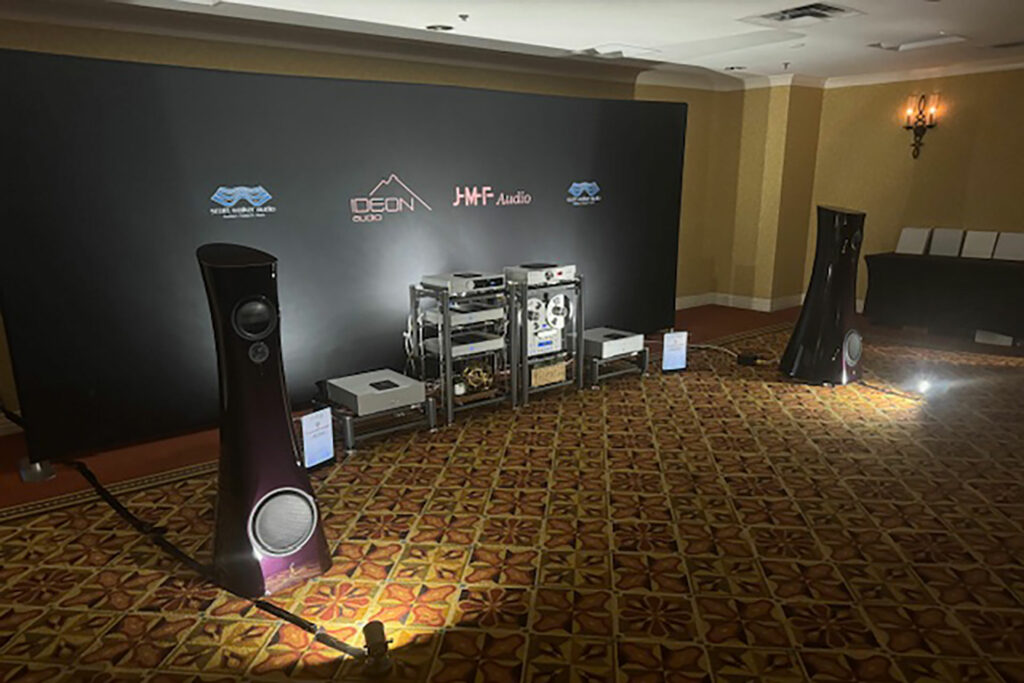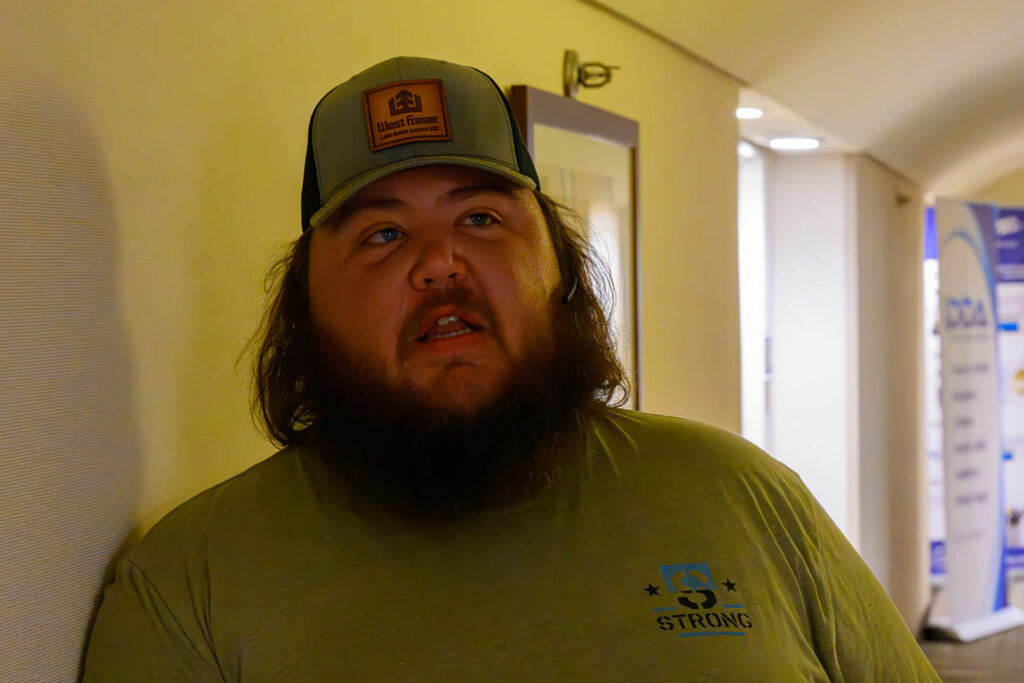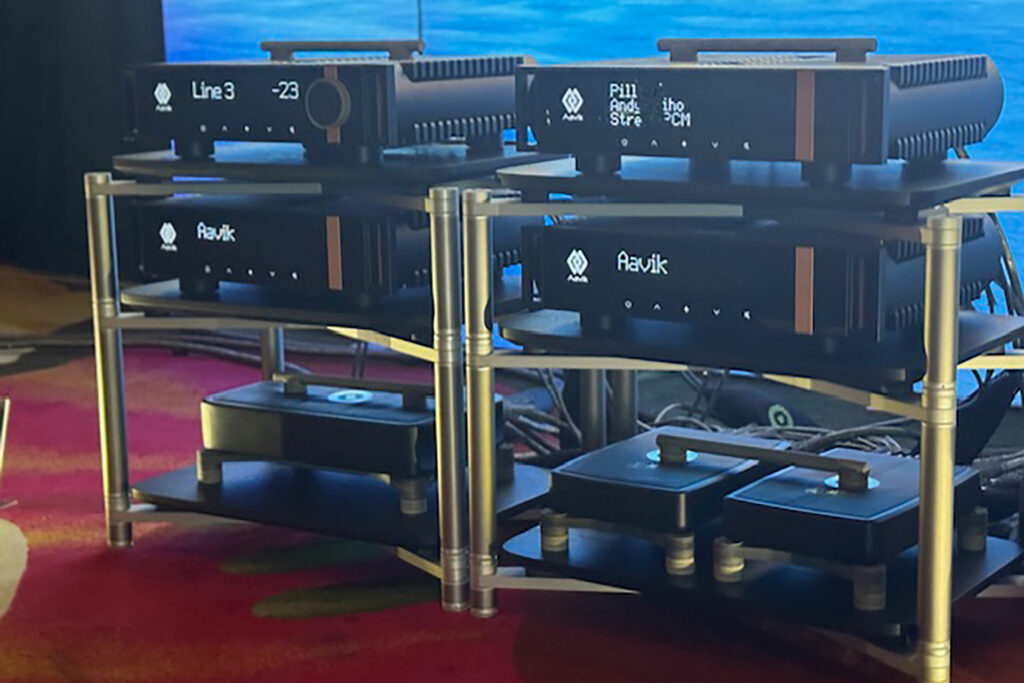Defining an audiophile is a very interesting question and one with any number of reasonably correct answers. Speaking strictly, and in accordance with the English language’s derivation from Latin, the first part of the term, “audio,” relates to anything we hear – in our case music. The second part of the term, “phile,” in fact means lover of. Our hobby, therefore, is principally defined as a person who loves music.
How does this definition, as presented, have much to do in the way of why our hobby has morphed into a profound dedication to audio equipment, sometimes at a pervasively expensive cost? Is it not possible for any of us, as lovers of music, to enjoy a handheld device equally as much as a reference audio system? I do not particularly enjoy listening to music on an iPhone and a set of ear buds. I don’t find doing so in any way entertaining. Instead, my most significant enjoyment of music comes from my high performance audio system. Likewise, this is my preference and not one necessarily shared by everyone else. Am I wrong for this way of thinking? What does it actually mean to be an audiophile? How do we define ourselves as practitioners of a hobby in which so many music enthusiasts do not participate?

Better Defining the Audiophile Hobby
There are any number of “philes.” An oenophile, for instance is a wine enthusiast. A cinephile is a movie buff and for anyone interested in books, the term bibliophile applies. It would seem there are many philes to describe the veritably endless ways we create to entertain ourselves.
As it applies to music playback, it seems logical to make the audiophile process a two pronged approach. We love music, yes, but only at a requisite quality level. Yet we also have a reliance in high quality playback systems. Our listening habits may best be described in two ways, one, critical listening – something we do to verify an aural checklist to ensure playback quality, and second, listening simply for pleasure. Everyone does the latter, it might be reasonably argued the former is singularly an audiophile practice.
When it comes to the playback of all recorded music, we need equipment to do so. While this is an obvious statement of fact, it seems audiophiles stand alone when it comes to the level of quality of playback systems. It seems, therefore, logical to place an inordinately high value on the quality of equipment pumping music out of our speakers for our enduring enjoyment, and as part of our audiophile definition.
Of course, and not at all surprisingly, we have different levels of systems and a wide variety of costs all in support of our namesake hobby. We can spend as little as a couple of grand up to in excess of seven figures and still be technically classified an audiophile. Needless to say, derision for such hyper expensive equipment exists within our little community. Some of us could never imagine investing more than four figures in an audio system. Others of us, with no surprise at all, would not consider any system under five figures, and some would say six, as being worthy of the high performance moniker. We have in our hobby a term for a decidedly expensive system – a one percenter, or one in which only one percent or less of the enthusiasts have such a system. It is not at all unreasonable to expect some contempt amongst our own when it comes to system cost.
Non audiophiles almost certainly find all this fascination with audio gear completely ridiculous. They cannot, nor probably ever will, understand why complete enjoyment of a song cannot be had from a handheld device and an inexpensive set of ear buds. It goes almost without saying that yes, audiophiles love music, but they are equally endeared to the equipment as well – irrespective of the cost. We see this dilemma as a coexistence of two factions, recorded music cannot exist without a playback system and we need recorded music, preferably high quality recordings, to actually play on our systems. Only audiophiles place such a high value on both the equipment and the musical playback quality.

What Do We As Audiophiles Get From Listening To High Quality Audio Systems And Music?
Everyone loves music. No doubt there. I suspect Cro Magnon man beat on the wall of the cave with a bone to entertain Cro Magnon woman. Audiophiles, I believe, take things to a different level. We listen for certain cues in how our music is presented. We have our own language to describe what we hear. We look to hear certain attributes such as soundstage, imaging, clarity, accuracy and dynamics. In short, we want a musically involving experience. When we attend a live concert and three days later we are still mesmerized by the phenomenal performance, we look for that same experience after every listening session in our home. We are happiest when ensconced by our audio system, a song ends and our mouth is opened wide and we find ourselves shaking our head in near disbelief by the excellence of what we heard.
Generally speaking, handheld devices and ear buds will not deliver this level of musical enjoyment. When Apple pioneered the iPod, Steve Jobs was not interested in sonic quality. He wanted a device capable of holding a 1,000 songs and could fit in a shirt pocket. The file format MP3 provided this requirement. Yet as we all are painfully aware, the early MP3 codec also stripped away much of the majesty and what we, as audiophiles, look for in our music. I call the result of this stripping away of music the skin of the snake. We wanted, then and now, something much better. Something, incidentally, audiophiles really only view a high performance system as being capable of fulfilling our musical needs.

Who Were Some of the Pioneering Companies of Our Hobby?
There are so many notable pioneers of high performance audio I suspect an entire series of articles could be devoted to this cause alone. However, here are a few notable mavericks who got the ball rolling:
- Edgar Villchur wanted better bass in a small speaker. His idea, a sealed enclosure, ultimately created Acoustic Research (AR) in the 1950’s. His most celebrated achievement was the AR3 speaker system. If your speakers are a sealed enclosure design, thank Edgar Villchur, he was the first to do so.
- William Zane Johnson of Audio Research and Frank McIntosh of McIntosh Laboratory were component pioneers. Both of these companies began in the 1950’s and both are still in business today. While ARC even now only manufacturers tubed equipment and McIntosh branched off into solid state in addition to tubes, having an audiophile technology developed some 100 years ago available today is partly due to the work of these two audio giants.
- Peter Walker and Theo Williamson co-developed the Quad ESL57 Electrostatic loudspeaker and founded Acoustical Manufacturing in 1957. Electrostatic speakers delivered unprecedented clarity and accuracy as opposed to horn and dynamic speaker designs so prevalent at the time. Then as now, electrostatic speakers have their issues, as do all speakers, but Quad became and remains a legacy speaker company.
- The Nakimichi Dragon, invented by Niro Nakamichi in the early 1980’s solved two problems in cassette playback. One, the Dragon was the world’s first cassette player with automatic azimuth adjustment – a notable improvement on cassette players of the day. Niro also developed bi-directional playback, or the ability of the deck to play both sides of a cassette without user intervention. These were landmark achievements and even today, the Dragon cassette deck is highly revered. Both myself and Future Audiophile Publisher, Jerry Del Colliano, would love to own one of these masterpieces.
- In 1972, Glasgow, Scotland manufacturer Linn Products introduced the Linn Sondek LP12 turntable. The design was based on a suspended sub chassis which delivered superior sonics. The LP12 has been in continuous production since its inception and is the longest running, continuously manufactured turntable in history. It should be noted the basic design of the LP12 was based on designs created in 1961 by Edgar Villchur of Acoustic Research. Seems Edgar was interested in more than just speakers.
- Chinese manufacturer Oppo Digital, a division of Guangdong based OPPO was formed in 2004 in Menlo Park, California. They excelled in producing high quality, inexpensive players used in the playback of Blu-Ray and DVD movies. For audiophiles, perhaps their greatest achievement was the ability to play DVD-Audio and SACD formats natively. Right from the start, Oppo Digital was an overwhelming success and they released numerous highly regarded models. Many audiophiles feel the BDP-205 Universal silver disc player was their most celebrated achievement. The world was shocked when in 2018, Oppo Digital announced it was closing forever. Anyone with an Oppo Digital component very likely cherishes it completely.
It is an obvious statement any of us could name quite a few pioneering companies worthy of being on this list. Suffice it to say while we cannot list them all, we value those companies, and individuals, who maybe thought outside the box and paved the road for what we today see as the most incredible way to play recorded music. Their contributions are eternally highly valued and respected.

What Can We Do Ensure the Audiophile Hobby’s Future?
While this is a very simply question to ask, a determined answer is not so simple. There is little doubt our hobby is aging. The average age of most audiophiles is in their 50’s and mostly likely even older. How long can our hobby sustain itself is a predominate question. In fact, Future Audiophile’s main goal is to introduce younger enthusiasts to the hobby. It is for this reason we will always strive to showcase inexpensive equipment which also offers excellent performance.
What can we, as presumably older audiophiles do to help our beloved hobby? For one, encourage others to listen to your system. Ask what music they like and enjoy and then play their music for them. Let guests sit in the listening position if this is the best seat in the house.
Explain what they are hearing. Ours is a technical hobby steeped in science. We use this science to make our listening sessions better. Most non audiophiles have no idea why anyone would hang acoustical panels on the wall. Or why, as is the case in my audio room, there is no 85 inch television. Rather than just telling someone speaker placement matters, show them. Move a speaker a few inches and let them hear the difference. Try to actually show non hobbyists why we find this hobby so endearing. Playing their music and allowing them to hear what all the fuss is about, especially with music they know and enjoy, should at the very least help explain our fascination with a means of playing a song.
Attend audio shows to keep abreast of new developments in the industry. It is worth mentioning high performance audio is first and foremost a business. All business needs new products and new revenue to survive. If your system is digital and over ten years old, there is little doubt the digital format has undergone seismic changes as compared to your system. Maybe a nominal investment will bring about a remarkable upgrade in your system and help manufacturers stay in business.
Pay attention to younger kids who love video games. Video games are a mammoth business segment. All of these video games have sound tracks. Tell them about your system and how it is much like a video game; a means of enjoyment at the highest level.
Become a willing ambassador for our hobby. When you are in the company of non-audiophiles, take the opportunity, if the chance arises, to promote our hobby. It is worth mentioning most people who do not share our passion do so because of a lack of exposure. Many younger music enthusiasts grew up with handheld devices and streaming. Maybe they have never really been exposed to a really fantastic audio system. If so, take it upon yourself to tell them about your system, why you find so much enjoyment in the music you play, and then, invite them to come hear for themselves. In short, be a real world ambassador of the high performance audio hobby.

Final Thoughts on What Defines an Audiophile …
I have been wondering for over 50 years now why this means of listening to a song so thoroughly captivates me. And in over 50 years of pondering the question, I have yet to come up with an answer. I also wonder why I have invested so much time and significant amounts of hard earned cash to have this level of musical playback quality. Again, a question I cannot answer. And I absolutely have not regretted one minute or one dollar spent in the process. Because high performance audio is my most preferred hobby. Certainly not my only one, but my most celebrated.
There is so much we, as audiophiles, can do in the furtherance of our hobby. And I realize there exists a fine line between being a promoter and just being obnoxious. Yet we can and should make some sort of effort to promote the hobby. Doing so is a surefire way to ensure we pass along our enthusiasm for a way to play a song to others.
I am an audiophile. In this effort I have spent most of my life. I continually work to better understand the hobby’s technical merits. I try to keep up with market trends and will consider new gear when and where it makes sense. I will always champion my preferred hobby to those who do not share my passion. I will invite others to hear my system and explain to them what they heard. For me, being an audiophile is more than simply sitting in a chair and listening to a song. I strive to do my part to ensure our hobby’s success. My audiophile goal, to some degree, is about being a member of a community, albeit a small community, but a group of enthusiasts devoted to a joyous cause. And that cause is high performance audio.
What is an audiophile? Simple, a lover of music. And in the case of our hobby, a lover of finely recreated music played and enjoyed at a very high level of excellence.
What defines the audiophile hobby for you? Do you consider yourself an audiophile? We’ve long sought another term for audiophile… do you have any suggestions for a new term? Comment below and we will quickly approve your message.




I just go with people are dead if they think that’s a good hardware cover version of your favorite recordings. If you ever want to know how well any of your gear actually performs, you would have to swap each component only 1 at a time, into the best hi-fi chain, start to finish, that exists, and that chain is supposed to be your “reference” chain, and it’s just what your normal least broken playback gear covering sounds like, which you should also be the most used to, so far.
Hello(?), speaker people, none of that stuff ever goes with either the women, or the dogs. But you’re all probably just the little grey audiophiles who at least aren’t slower smaller, anyways.
Whatever your system is, it sucks. Plus, if you’re not on electrostatic headphones, you will only ever be late to the reference monitoring that can’t be beaten by increasing driver impact, luckily for your rate of excitement speed.
Don’t bother trying to expand the gear enthusiasm, without multiple joints to be ok with it actually being.
You’re the one who had better not listen to video game soundtracks, if you think you won’t get killed for your musical preferences. Just wait until someone asks a question, then spout off about how much their current part sucks compared to if only they paid double for one, but there’s room to wiggle a bit higher, if something looks really good.
I find that most people are really surprised in a good way when the listen to my system that it is possible to have really good sound at home. Very few really care about the gear or how the good sound is achieved.
To me, listening to “quality” music is a form of meditation. Additionally, the gear seems to satisfy my “engineering” or “how things work” curiosity (not sure why, I spent my career in sales).
For my son, who plays guitar and attends a lot of concerts, I think his system is more about the music, how it sounds and how it compares to live music.
In other words, the hobby offers different types of satisfaction to different people and to expand, the “hobby” has to welcome all types/interests…AND…have “products” that appeals to those varied interests.
Every time I listen to Hot August Night with my Rega P3, I understand that I am an avid Audiophile !